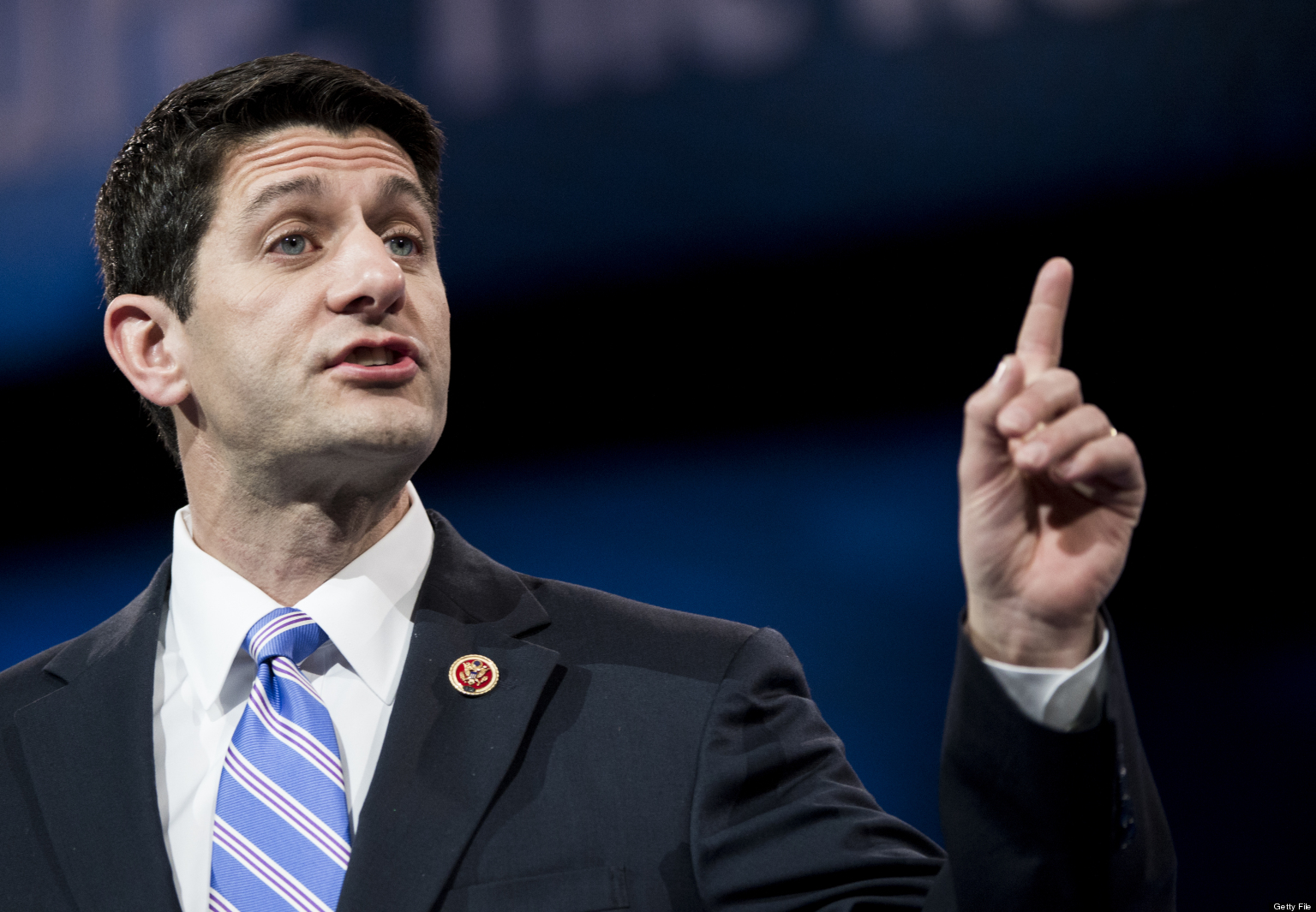
Some top Republicans see House Speaker Paul Ryan as the party’s savior if they can just make him the GOP presidential nominee. But Ryan loses to both major Democratic candidates in head-to-head matchups, with roughly a quarter of Republicans looking somewhere else.
The latest Rasmussen Reports national telephone survey finds that Hillary Clinton tops Ryan 40% to 34% among Likely U.S. Voters, but a sizable 22% prefer some other candidate given that matchup.(To see survey question wording, click here.)
Similarly, Senator Bernie Sanders posts a 41% to 34% win over Ryan, but 20% like another candidate. Five percent (5%) are undecided in both cases.

A closer look at the numbers, however, suggests the danger to Republicans of a brokered convention that denies Donald Trump or Ted Cruz the nomination. Ryan earns GOP support only in the high 50s against both Democrats. If Ryan is the GOP’s choice to run against Clinton, 28% of Republicans opt for someone else. If Sanders is Ryan’s opponent, 24% of GOP voters like another candidate.
Twenty-four percent (24%) of GOP voters said last month that they are Very Likely to vote for Trump if he runs as a third-party presidential candidate.
Ryan is viewed favorably by 59% of Republican voters. That’s little changed from last October and includes only 27% with a Very Favorable opinion of him. But 30% now share an unfavorable view of the House leader, including 14% with a Very Unfavorable one. Unfavorables are up noticeably from 16% and three percent (3%) last fall. Eleven percent (11%) remain undecided.
Among all voters, Ryan is seen favorably by 39% and unfavorably by 44%. This includes 15% with a Very Favorable view of him and 21% with a Very Unfavorable one. Sixteen percent (16%) are undecided.
(Want a free daily e-mail update? If it’s in the news, it’s in our polls). Rasmussen Reports updates are also available on Twitter or Facebook.
The survey of 1,000 Likely Voters was conducted on April 5-6, 2016 by Rasmussen Reports. The margin of sampling error is +/- 3 percentage points with a 95% level of confidence. Field work for all Rasmussen Reports surveys is conducted by Pulse Opinion Research, LLC. See methodology.
Just over half (51%) of GOP voters oppose a brokered convention and think the party’s nominee should be the candidate who arrives at the convention with the most delegates. Two-out-of-three Republicans (66%) believe delegates should be required to support the candidate they were elected to support.
Ryan is viewed unfavorably by 64% of Democrats. Among voters not affiliated with either major party, 30% have a favorable opinion of him; 38% do not, but 21% are not sure.
Voters under 40 prefer Clinton by 20 points over Ryan, while Sanders holds a 34-point lead. Ryan has a slight edge among older voters, although Clinton is the favorite among senior citizens.
The race is close, too, among men, but women give both Democrats a double-digit lead over Ryan.
The speaker holds small leads over Clinton and Sanders among whites but trails by wide margins among blacks and other minority voters.
In most demographic categories, though, there are large numbers of voters who prefer another candidate given both these matchups.
Seventy-six percent (76%) of GOP voters now think Republicans in Congress have lost touch with party voters, the highest finding in eight years. Just 13% of Republicans think Congress is doing a good or excellent job.
Trump’s candidacy appears to have lost some momentum in the last couple weeks. We’ll release new numbers on his chances tomorrow morning.
Republican voters have to be asking themselves after his latest shutout in Tuesday’s Wisconsin primary, why is John Kasich still in the presidential race?
All three remaining Republican candidates refused to say at a recent CNN town whether they would support the party’s eventual presidential nominee if they didn’t win. But most Republicans also don’t care if the failed candidates support the nominee or not.
Additional information from this survey and a full demographic breakdown are available to Platinum Members only.



Expositores: Oscar Vidarte (PUCP) Fernando González Vigil (Universidad del Pacífico) Inscripciones aquí. Leer más
Una retrospectiva para entender los próximos cuatro años. Leer más
En la conferencia se hará una presentación de los temas más relevantes del proceso de negociación se llevó a cabo desde el 2012, así como del acuerdo de paz firmado entre el Gobierno colombiano y la guerrilla de las FARC a finales del 2016. Se analizarán los desafíos y las... Leer más
El Observatorio de las Relaciones Peruano-Norteamericanas (ORPN) de la Universidad del Pacífico es un programa encargado de analizar y difundir información relevante sobre la situación política, económica y social de Estados Unidos y analizar, desde una perspectiva multidisciplinaria, su efecto en las relaciones bilaterales con el Perú.
© 2025 Universidad del Pacífico - Departamento Académico de Humanidades. Todos los derechos reservados.

